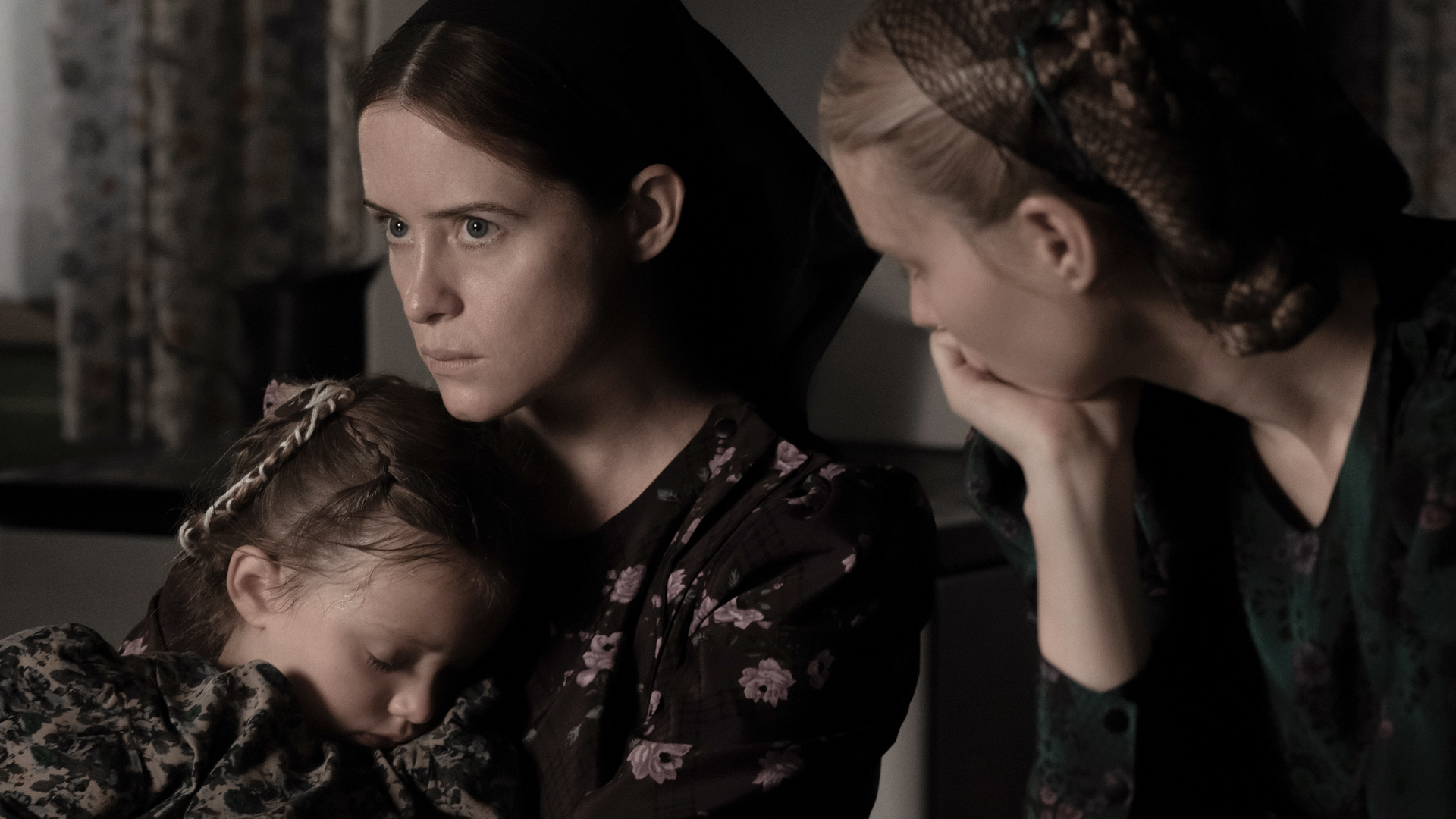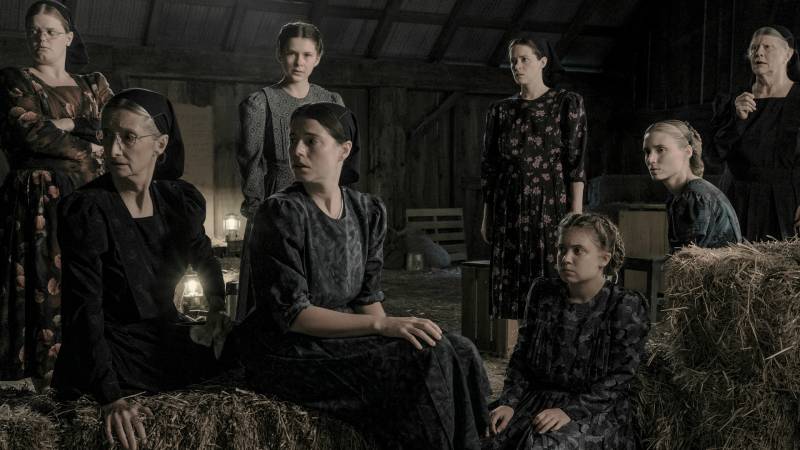The benign title of Sarah Polley’s film, Women Talking, suggests an innocuous gathering of gal pals chatting in a light-hearted romcom. But Polley’s adaptation of Miriam Toews’ novel of the same name positions her female characters at the center of a solemn, determined revolution. Where the women in Aristophanes’ play Lysistrata (see also Spike Lee’s Chi-Raq) withhold their bodies from their boyfriends and husbands, Polley’s Mennonite women debate an even more expansive, Biblical-sized punishment. Should they remove themselves permanently from the company of men?
Structurally, Women Talking resembles the legal drama 12 Angry Men, but their debate doesn’t involve the law. It revolves around questions of faith and morality. Can pacifists seek revenge for a series of brutal crimes perpetrated against themselves? In an ever-changing roundelay, the dialogue ricochets between three main and, intermittently, several supporting characters. They form and reform impassioned arguments with one another.

Polley’s camera actively roams in and out of the main set, a barn loft, to take in the surrounding fields and farm houses. But the action, such as it is, takes place internally, as thoughts dawn expressively across the women’s faces, and externally, during each tensely choreographed verbal exchange.
Ona (Rooney Mara), Salome (Claire Foy) and Mariche (Jessie Buckley) resonate on screen as individuals but they also represent certain recognizable archetypes. Ona’s a beatific Earth mother. Salome is a vengeful goddess, a scythe-wielding fury. And in more modern terms, Mariche is an obedient wife who would have been comfortable marching alongside Phyllis Schlafly. Each woman embodies one possible response to the men’s crimes against them.
They can forgive them peaceably, quietly, as their faith recommends. They can retaliate with violence. Or, they can leave the only home they’ve ever known. As the conflicting ideas move around the room, the film begins to expand beyond the confines of the hay-filled barn. The story starts in a particular time and place, with these particular women’s stories, but slowly builds into a resonant, all-encompassing allegory.

Polley wisely chooses not to depict or reenact any of the rape scenes that have led to this gathering. Nor does she provide any of the men screen time to defend themselves. The director incorporates flashbacks to provide the audience with visual “evidence.” Nearly every woman in the barn is shown in their bed alone at dawn. Each one wakes up bloodied, bruised and horrified by what’s been done to them while they’ve been drugged and asleep.




